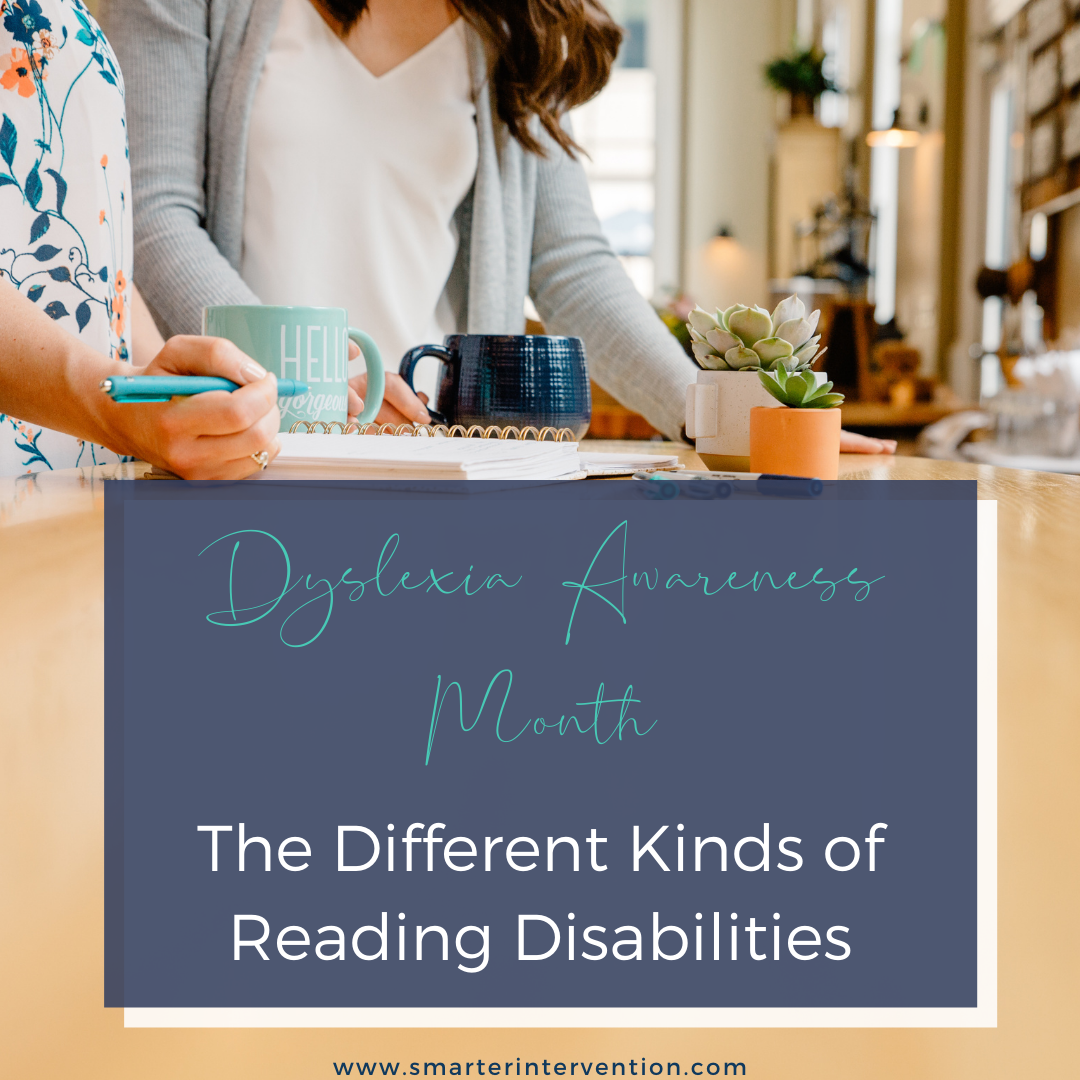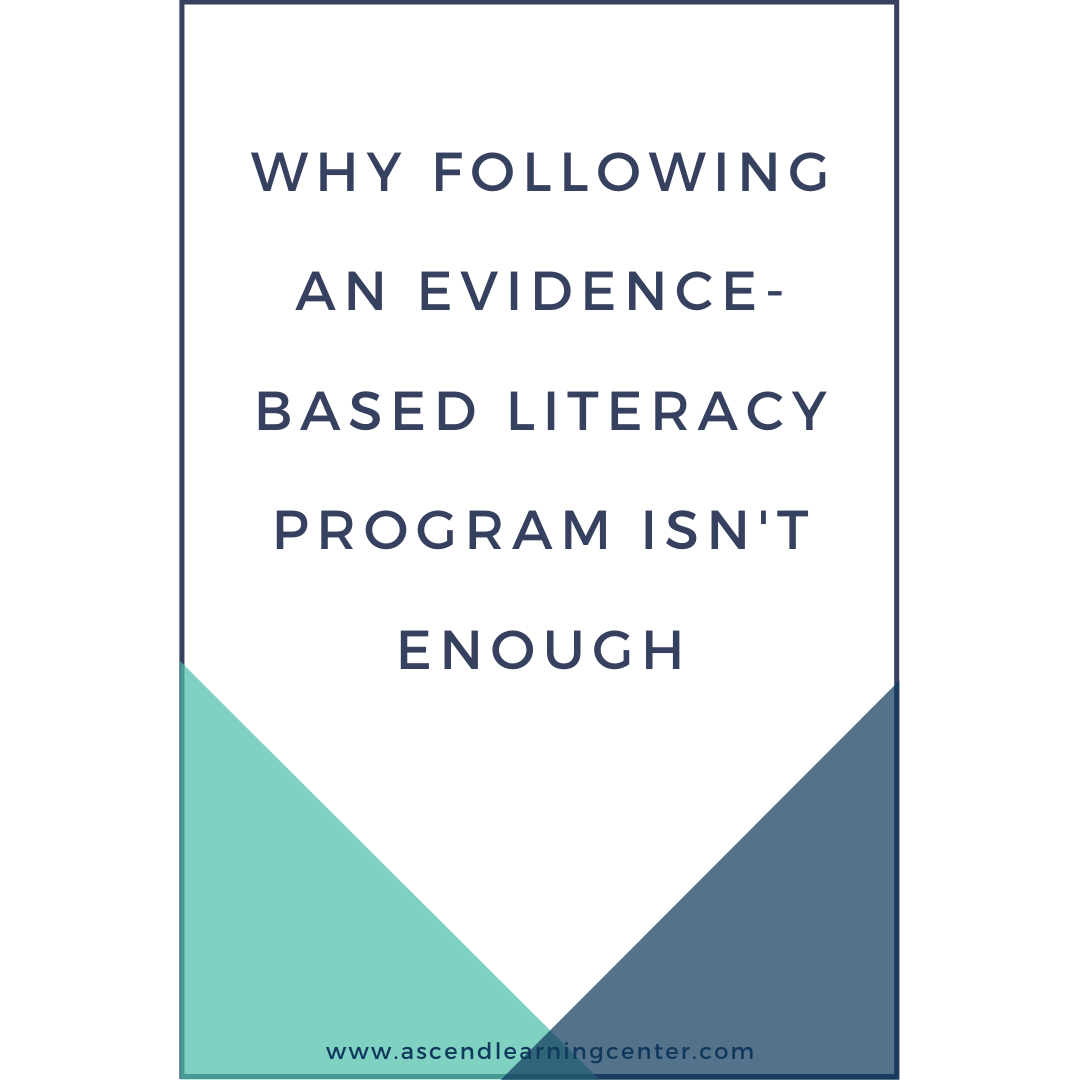Science-based literacy resources and articles
for families, educators and schools
Search by Category:
Categories
- Advocacy
- Business
- Comprehension
- Data Tracking
- Differentiation
- Dyslexia
- Evaluation and Assessment
- Executive Functioning
- Games & Activities
- Helping My Child At Home
- IEP/504 Plan
- Lesson Planning
- Math
- Online Intervention
- Organization
- Parents
- Phonics
- Phonological Awareness
- Reading Fluency
- Research
- SLP
- Spelling
- Vocabulary
- Writing
How to Use 1 Reading Activity to Target 5 Literacy Skills
There are so many different factors that play into learning to read and write effectively. It can often feel overwhelming because it seems like we need to hit on all of these skills separately and hope that it all comes together! This isn’t the case. With just one activity, you can hit on multiple skills and help your students grow!
Do I Need to Teach Phonological Awareness Skills?
To teach, or not to teach phonological awareness…this is the question (especially because research seems to be ever-changing in this area)!!
Check out this blog for answers to understand its importance, target specific skills, and integrate PA seamlessly into your lessons. Explore why phonological awareness matters for all ages and how to make it feel cohesive.
Should I Teach Syllable Segmenting?
Can you spell supercalifragilisticexpialidocious? Can your students?
In all seriousness, supercalifragilisticexpialidocious isn't the most functional word to spell – but as students progress academically, they do need to be able to break down long words for reading and spelling. Keep reading to learn why syllable segmenting is necessary and how to incorporate this instruction into your lessons!
Should I Teach Syllable Blending?
You might be wondering when it would be important to teach syllable blending. Is this a skill students even need?
The answer to that question is yes. This is a skill that students, in fact, need. But there are specific times when teaching this skill will be most important. Keep reading to learn more!
Should I Teach Rhyming?
You may be wondering if teaching students to rhyme is really necessary. Recently, research has been mixed on whether or not we should be targeting this skill in our instruction.
The argument here is that it isn't necessary to teach because it doesn't directly translate to reading in the same way blending does.
So…should we be teaching rhyming? Keep reading to find out.
How Data-Tracking Makes Classrooms Equitable
As educators we are capable of changing the world - one of the best ways we can continue doing this is by leveling the playing field for our students, so every child can be as successful as they can be. In order to level the playing field, we must have clarity around our students’ strengths and difficulties and we must make sure that we’re able to understand this in an equitable way. Educational equity is absolutely crucial because it gives equal opportunities to children. Data-tracking can help set us up for educational equity - keep reading to learn more about educational equity and how data-tracking can help us make our classrooms more equitable for all of our students.
The Missing Piece in the Data-Tracking Process
One of the biggest mistakes we see in intervention is when interventionists take all of this time to collect wonderful data, but then not effectively sharing it with those who have a vested interest in the results - click here to read more about how you can EASILY share your results and grab a FREE resource that will help you do so!
Dyslexia & Co-Occurring Difficulties
We wanted to take this conversation a step further and dig into some common co-occurring struggles we see in our students with dyslexia. Specifically language, attention, mathematics, and social-emotional difficulties.
So let’s dive in!
The Different Kinds of Reading Disabilities
Many students struggle to learn how to read effectively or efficiently.
RESEARCH INDICATES THAT THERE ARE THREE DIFFERENT TYPES OF READING DISABILITIES.
These three types of disabilities relate to (if you know us…you’re probably guessing it right now!!!)
YEP…..
The Literacy Processing Triangle
The Magic in Literacy Intervention
Here’s the deal, structured and systematic literacy intervention will get your students 90% of the way there. The true magic lies in the last 10%.
Why Following an Evidence-Based Literacy Program Isn't Enough
If you know us well by now, you know that we are huge proponents of evidence-based (research-based) literacy intervention. It is absolutely CRITICAL that we be following evidence-based practices especially to get our struggling readers to grade level.
But here’s the issue - and it’s a big issue because nobody is really talking about it.
It’s not enough alone.
How to Progress Monitor Online
If you have been with us for a while, then you know we get super excited when it comes to data. We love using it to write treatment plans for students, to monitor growth, to assess whether or not the student needs something different, etc. We use data to make every decision in our intervention and we wouldn’t be able to run our practice effectively without it.
So, when we transitioned to seeing students online, the natural question was how in the world we’d be able to assess and progress monitor virtually.
The Biggest Mistake We're Making in Literacy Intervention
This is a bold claim - we understand. But here’s the thing we’ve noticed after years of intervention work and years of working with hundreds of literacy interventionists.
The culture of literacy intervention has built up this idea that we have to be perfect to get started. This idea that if we don’t do everything just so …. our students will suffer. It’s led to this idea that there is a “perfect way” to implement effective literacy intervention.
The #1 Reason Students Aren't Generalizing Their Literacy Skills
One of the biggest problems we’ve seen over the years is that many students receive solid, research-based intervention, they learn the skills but then are unable to take those skills they’ve learned in the context of a structured and systematic approach and apply it to what they need to be doing in the classroom. They are unable to apply to their classroom reading assignments, their classroom writing assignments.
How to Run Online Literacy Intervention - Quick Tips
So we asked our Intervention Insiders Community to give us feedback on what’s up with online intervention. And we received some really awesome questions. So we wanted to take this week to dive in and answer some of those questions.
The Materials You Need to Keep Online Lessons Engaging
Today - we wanted to share some of the physical materials we’re finding helpful in keeping our online sessions engaging. Now, most of our students are doing AMAZINGLY well at adapting to the online space.
How to Differentiate Within a Framework
While programs can and often will give suggested guidelines on where to start a student, how quickly to move through the program, and how to instruct the material, it is still your space to use clinical/professional judgement and to fill in concepts and review as needed. Trust your intuition - you know your students best!
Lesson Planning - Morphology Based Lessons - Intervention Tip of the Week
Master morphology in reading intervention! Discover effective strategies to integrate morphological instruction seamlessly into your lessons. Learn from our proven methods and watch the video for intervention insights!


















